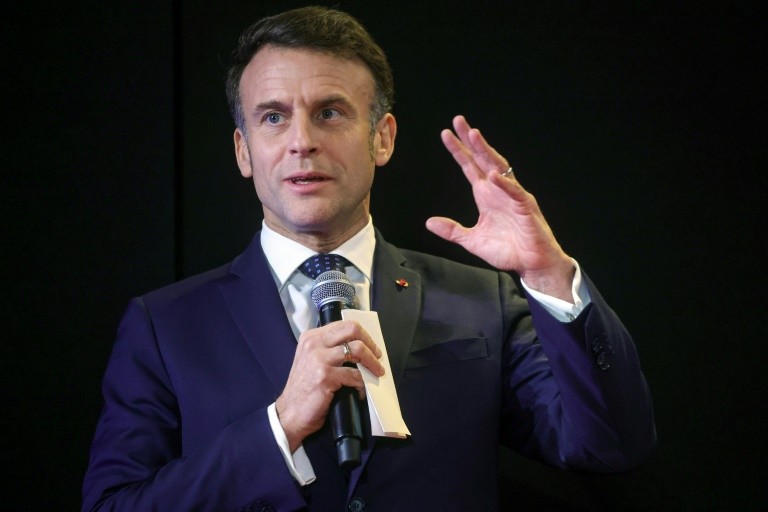
France's artificial intelligence sector is set to receive $112.6 billion in private investment over the "coming years," President Emmanuel Macron announced Sunday, ahead of the country's global AI summit.
Speaking with French broadcaster TF1, Macron described the investment as "the equivalent for France of what the United States announced with Stargate," referring to President Donald Trump's $500 billion private AI investment initiative.
The U.S. project, dubbed Stargate, involves OpenAI, Oracle, and SoftBank committing up to $500 billion to AI infrastructure in America over the next four years. Meanwhile, the French financing will include contributions from the United Arab Emirates, investment funds from the U.S. and Canada, as well as French companies like telecommunications firms Iliad and Orange, and aerospace and defense group Thales.
Ahead of France's AI Action Summit, which began on Monday, the UAE confirmed plans to invest between $30 billion and $50 billion in a one-gigawatt AI data center in France, forming part of a broader AI development campus. Additionally, Iliad has committed over $3 billion to AI infrastructure, and Paris-based AI firm Mistral has announced plans to invest billions in constructing its own data center in France.
Victor Riparbelli, CEO of British AI startup Synthesia, welcomed Macron's €109 billion investment plan, calling it a "great" step for the European AI ecosystem but emphasized that more needs to be done for Europe to remain competitive against the U.S. and China.
"We need to set the right foundations for Europe to thrive as an ecosystem," Riparbelli told CNBC's Arjun Kharpal on Monday. "It's great that we invest more in infrastructure. I don't think it's the sole solution to the problem. There's lots of other things we need to worry about as well. But what I think is really great, is there's political will to actually do something," he added.
The Artificial Intelligence Action Summit is bringing together world leaders and top executives from the leading AI companies in Paris. Attendees include U.S. Vice President JD Vance, EU President Ursula von der Leyen, German Chancellor Olaf Scholz, Canadian Prime Minister Justin Trudeau, Google CEO Sundar Pichai, Microsoft President Brad Smith, OpenAI CEO Sam Altman, Google DeepMind CEO Demis Hassabis, and Anthropic CEO Dario Amodei. However, Elon Musk is not slated to attend.
Axios reported on Saturday that OpenAI's Altman is expected to urge world leaders to broaden their approach to AI governance. Rather than focusing solely on risk, as often emphasized in Europe, he will advocate for embracing growth and opportunity.
Meanwhile, the recent emergence of Chinese AI firm DeepSeek's open-source model R1 has sparked industry discussions regarding the immense capital investments needed to develop AI infrastructure. DeepSeek reported its model's total training costs at $5.6 million, but industry analysts have questioned this figure.
Last month, semiconductor research firm SemiAnalysis estimated that DeepSeek's total hardware expenses exceed $500 million, alongside substantial research and development costs.
On Sunday, Google DeepMind's Demis Hassabis commented on DeepSeek's AI model, calling it "probably the best work" he has seen from China but downplaying its significance in technological advancements.
"Despite the hype, there's no actual new scientific advance ... it's using known techniques [in AI]," Hassabis said, adding that the excitement surrounding DeepSeek has been "exaggerated a little bit."








